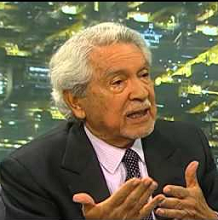 Democratic voting does not always produce good governments. Adolf Hitler’s rise to power in the final free election of the Weimar Republic, and Hugo Chavez’s election in Venezuela are just two salient examples. Thus, understanding voting behavior has become one of the most studied subjects in the social sciences straddling the disciplines of economics, political science, psychology, and sociology.
Democratic voting does not always produce good governments. Adolf Hitler’s rise to power in the final free election of the Weimar Republic, and Hugo Chavez’s election in Venezuela are just two salient examples. Thus, understanding voting behavior has become one of the most studied subjects in the social sciences straddling the disciplines of economics, political science, psychology, and sociology.
Joining this effort social scientists Christopher Achen and Larry Bartels explore, “why elections do not produce responsive government” with their book Democracy for Realists. Here, I borrow from their work to overview some concepts of voting behavior.
In our traditional understanding of democracy, we, as voters, have preferences about what the government should do, and we elect leaders that vow to enact policies in-line with our preferences. This future-looking romantic theory of democracy assumes that engaged citizens can inform themselves on the many issues a nation faces and can master the policy intricacies to judge intelligently. The romantic theory of democracy also posits that voters can assess the qualifications of competing candidates and then vote for the candidate that best matches their own political values.
However, contemporary political science has found little evidence that voters fit this idealistic profile. This raises questions as to whether citizens can properly perform the role required of them by the romantic theory of democracy. Scholars of public opinion tell us that, notwithstanding the dramatic increase in the variety of mass media, the citizenry’s level of political knowledge remains very low.
- Hits: 1598
 El asalto a la democracia liberal se ha convertido en un fenómeno global y, uno a uno, los países de diferentes partes del mundo han sido víctimas del fenómeno.
El asalto a la democracia liberal se ha convertido en un fenómeno global y, uno a uno, los países de diferentes partes del mundo han sido víctimas del fenómeno. When they were working together some years ago at the Ukrainian Catholic University — the only Catholic institution of higher learning in the former Soviet space — Father Borys Gudziak and Father Sviatoslav Shevchuk did not imagine themselves occupying their present positions. Nor could they imagine that they would be at the center of epic historical events in 2022-2023, defending order and decency in world politics amidst a brutal war. In that wholly unanticipated circumstance, however, and from their current positions of responsibility in the Ukrainian Greek Catholic Church, Major-Archbishop Shevchuk (the UGCC’s head) and Archbishop Gudziak (the archeparch of Philadelphia for Ukrainian Greek Catholics) have borne a powerful global witness to the truths of Catholic faith amidst a moral monster’s genocidal assault on the people of Ukraine.
When they were working together some years ago at the Ukrainian Catholic University — the only Catholic institution of higher learning in the former Soviet space — Father Borys Gudziak and Father Sviatoslav Shevchuk did not imagine themselves occupying their present positions. Nor could they imagine that they would be at the center of epic historical events in 2022-2023, defending order and decency in world politics amidst a brutal war. In that wholly unanticipated circumstance, however, and from their current positions of responsibility in the Ukrainian Greek Catholic Church, Major-Archbishop Shevchuk (the UGCC’s head) and Archbishop Gudziak (the archeparch of Philadelphia for Ukrainian Greek Catholics) have borne a powerful global witness to the truths of Catholic faith amidst a moral monster’s genocidal assault on the people of Ukraine.

